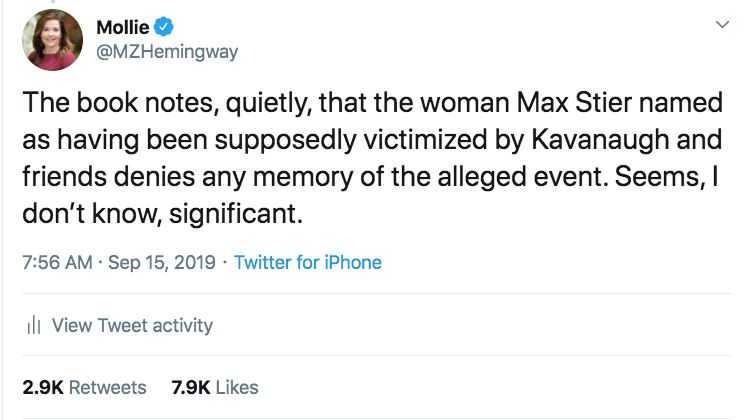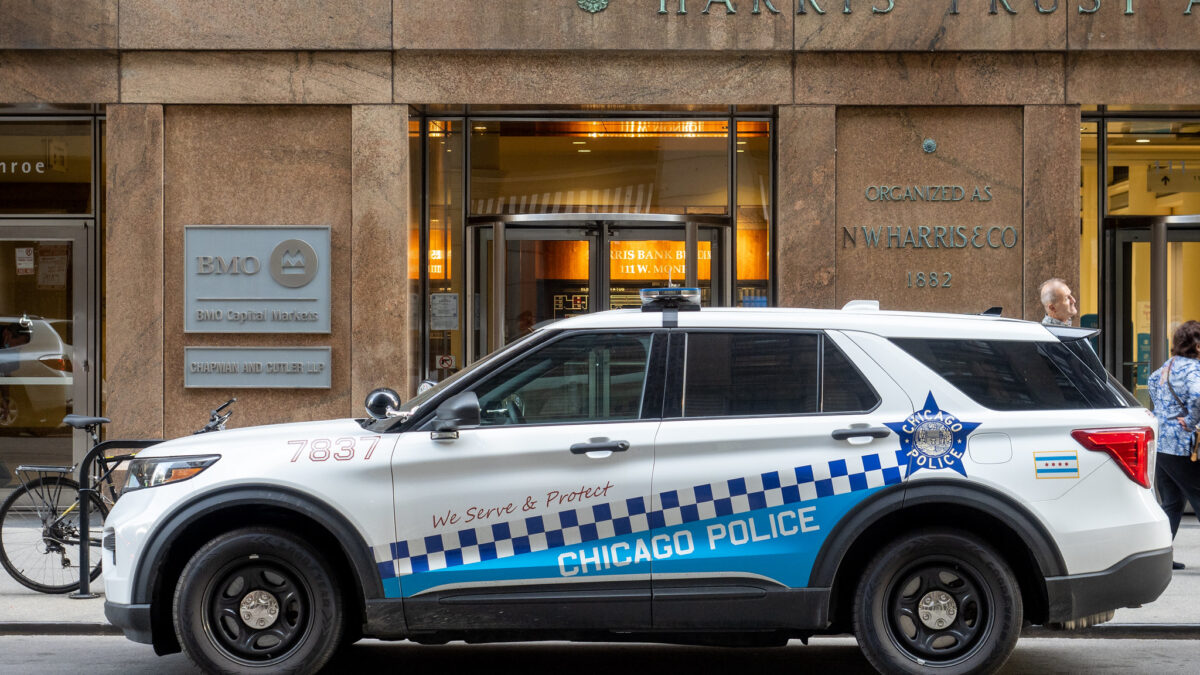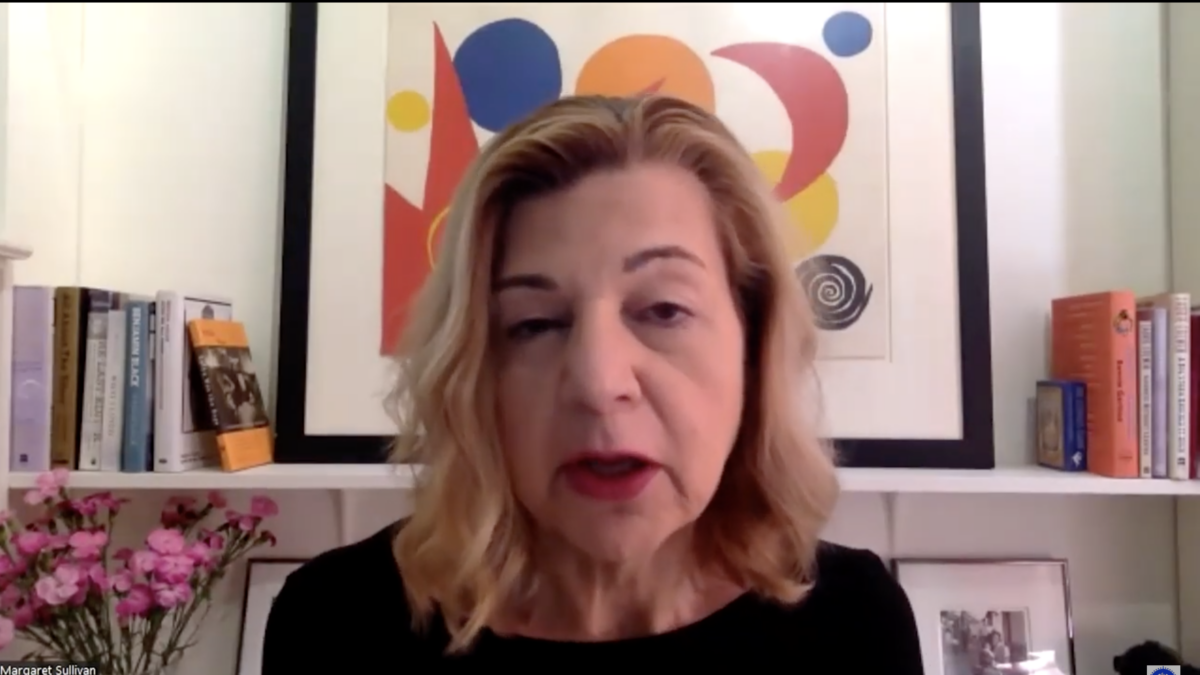New York Times reporters Robin Pogrebin and Kate Kelly have been criticized for failing to include a key detail in a smear of Justice Brett Kavanaugh that they published with The New York Times on Saturday. Their claim of a physically improbable encounter between Kavanaugh and a woman — as supposedly told by an attorney who represented former President Bill Clinton during the Whitewater investigation Kavanaugh worked on — failed to note that the woman never made the claim and told “several” friends that she had no memory of such an encounter. It also mischaracterized the Clinton attorney as nonpartisan.
The article was corrected late on Sunday night, after the smear had led to domination of the news cycle and calls for impeachment of Kavanaugh from nearly all contenders for the Democratic presidential nomination.
Pogrebin, asked about this journalistic failure on “The View,” said the error was inadvertent and due to an editing error. What’s more, she said, “As soon as we realized this, we corrected it.”
There are three problems with her claim. One is that the same error was made in an NPR interview that aired on Monday. Not only can that not be blamed on editing, the host of the interview had to edit in a correction on account of the authors going out of their way to not mention the key piece of information about the alleged victim.
Another problem is that Pogrebin, despite referring to the correction as a correction yesterday, is now spreading messaging from leftist online publication Vox that the article was not corrected.
The most important problem, though, is that it is flat-out false to say that the authors corrected the error as soon as it was realized.
The article went live on Saturday afternoon. Later that afternoon — 5:13 p.m. — a malicious tweet for the article penned by Pogrebin went out from The New York Times. The Times was forced to delete and apologize for it.
While the book was not released until Tuesday, and advance copies were given only to liberal reporters who agreed to sign a non-disclosure agreement, this writer secured a copy of the book on Saturday night. This writer read the book and tweeted reactions to it. By 7:56 a.m. Sunday, Sept. 15, the error was publicized:

By 11:00 a.m. Sunday, Howard Kurtz discussed the problem with a panel of guests in front of a national audience on MediaBuzz at Fox News Channel. Live on air, Kurtz read the line from the book that was omitted in The New York Times essay.
Within the hour, John McCormack, a reporter for National Review, wrote “The New York Times Anti-Kavanaugh Bombshell Is Actually a Dud.”
The New York Times opinion section was officially notified of the omission by email before 11:00 a.m. and confirmed receipt of the notification. The correction did not run until around 11 p.m., more than 12 hours after the paper was officially notified of the error and 15 hours after it was first publicized.
It’s not just that it took an entire day for the error to be corrected, and more than a day from when the article ran without the key detail, The New York Times’ delay affected national politics and Justice Kavanaugh’s reputation in a profound way. It was during this period that calls for impeachment reached a fever pitch and his reputation was besmirched by yet another false report.
Pogrebin falsely claims she and Kelly corrected the article “as soon as we realized” the problem. The record shows that while she was active on social media throughout the day, she never once clarified the omission. In fact, she bragged that her false story had gone viral and was leading to calls for impeachment.
There’s another problem with her claim that she and Kelly corrected the article as soon as they realized the error. That’s not what they told Lawrence O’Donnell on Monday night. With him, they said they did not do it as soon as they realized it, but only because they were getting so much heat for failing to include it in the essay.
Pogrebin said, “Yeah, I mean I think we felt like there was so much heat, you know, there’s so much, everyone has been kind of seizing on various aspects of this, that we certainly didn’t want this to be an issue anymore, and we certainly never intended to mislead in any way.”
Another significant factual error was found in an excerpt of Pogrebin and Kelly’s book published by The Atlantic.









